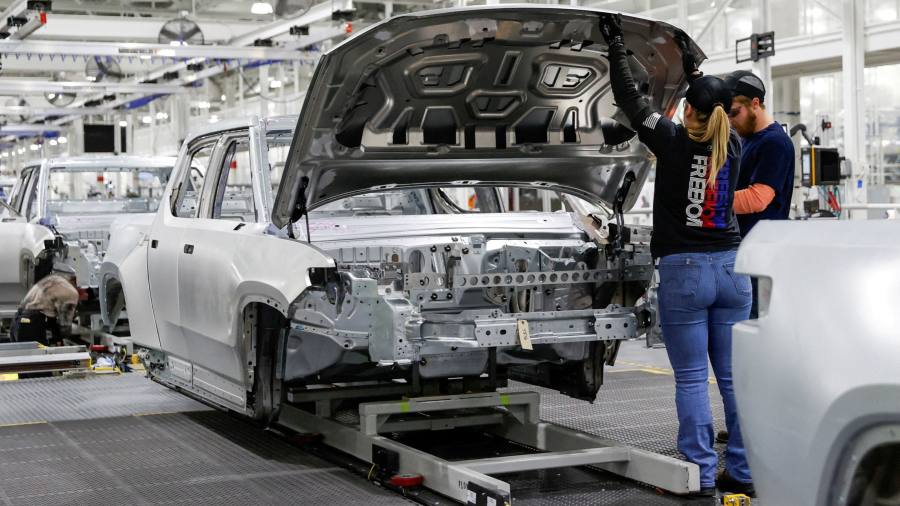
Rivian has halted a deal to make electric vans with Mercedes-Benz in Europe as the start-up seeks to preserve cash reserves by focusing on existing production in North America in deteriorating economic conditions.
The pair signed a memorandum of understanding in September to open a joint plant in central Europe to make battery electric delivery vans, arguing that joint purchasing and other synergies would help both companies increase market share faster.
But on Monday, Rivian said it wanted to “pursue the best risk-adjusted returns on our capital investments”, and was pausing the Mercedes partnership.
Rivian founder RJ Scaringe said: “At this point in time we believe focusing on our consumer business, as well as our existing commercial business, represent the most attractive near-term opportunities to maximise value for Rivian.”
It already has US manufacturing operations making a pick-up truck and sport utility vehicle, as well as a delivery van for Amazon, and is in the process of developing a new generation of consumer vehicles.
Mercedes said it “respects and understands” the unexpected decision, but will still press ahead with a new site, which it announced will be in Jawor, Poland.
Mathias Geisen, head of Mercedes-Benz Vans, said: “Exploring strategic opportunities with the team at Rivian in the future remains an option, as we share the same strategic ambition: accelerating the EV adoption with benchmark products for our customers.”
The shift towards electric vehicles has led to a wave of start-ups entering the car industry, many raising billions through stock market listings or reverse takeovers.
But many of the new players have struggled when ramping up production, or risked running out of cash too soon.
UK van maker Arrival and US group Faraday Future have both issued “going concern” warnings that they do not have enough cash to last another year, after deteriorating market conditions made additional fundraising difficult.
The move was going to be the first international expansion for Rivian, which has faced several setbacks starting its own production in the US.
Earlier this year, the company blamed supply chain disruption for a decision to halve this year’s expected output from its plant.
At the end of September, Rivian said it had about $14bn of cash or cash equivalents available to the company, down from $18bn at the start of the year. Its cash burn during the third quarter was about $1.4bn.
In its most recent shareholder update in October, it said the company “remains confident in our ability to fund operations with cash on hand through 2025, excluding the impact of the investment in the currently contemplated joint venture with Mercedes-Benz”.